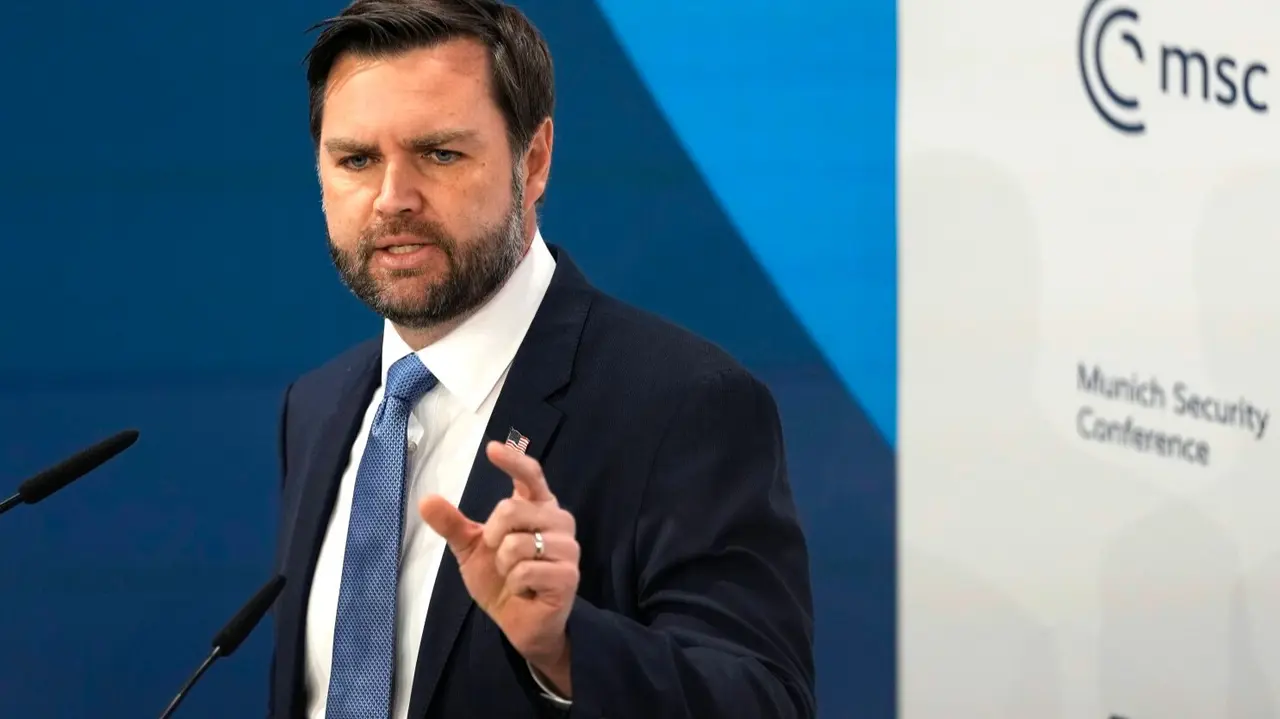Updated 26 March 2025 at 23:20 IST
Explained: How JD Vance Became the Trump Administration’s Biggest Critic of Europe
While President Trump has often criticized NATO allies for not spending enough on defense, Vance’s rhetoric goes even further.
- World News
- 5 min read

US Vice President JD Vance’s skepticism toward Europe is once again in the spotlight after a series of leaked text messages revealed his opposition to U.S. military action against the Houthis. The messages, exchanged among top U.S. officials and disclosed by The Atlantic, highlight Vance’s belief that America should not be responsible for defending Europe’s interests.
"I think we are making a mistake," Vance wrote in the group chat, arguing that the Houthis were "more Europe’s problem than America’s." The conversation unfolded before the U.S. launched airstrikes in response to Houthi attacks on commercial shipping routes.
Beyond this latest controversy, Vance has consistently voiced deep skepticism about U.S. commitments to Europe, openly questioning the continent’s role in global security. His stance, both in private and public, has put him at odds with European leaders, many of whom are increasingly wary of Washington’s shifting priorities under the Trump administration.
A Hawkish Stance on Relations with Europe
Vance’s criticism of Europe extends far beyond the recent text-message controversy. Over the past two months, the vice president has made a series of provocative remarks that have strained diplomatic relations.
Advertisement
During a speech at the Munich Security Conference in February, he lambasted European leaders for their handling of free speech and immigration, warning that Europe was "at risk of engaging in civilizational suicide." His rhetoric shocked diplomats, especially after he visited the Dachau concentration camp earlier that day.
"He didn’t seem to learn the right lesson from Dachau," a senior German diplomat remarked, as per a report from Axios.
Advertisement
Vance’s remarks about military aid to Ukraine also drew backlash. In an interview with Fox News, he dismissed European military contributions to the war, arguing that Ukraine would be better off relying on U.S. economic aid rather than "20,000 troops from some random country that hasn’t fought a war in 30 or 40 years."
After outrage from European allies, particularly in Britain and France, Vance later clarified that he wasn’t referring to those nations. However, he refused to specify which countries he believed were offering inadequate support.
Leaked Texts Reveal Deep Skepticism of Europe
The private text messages exchanged between Vance and senior U.S. officials further reveal the depth of his distrust toward European leadership. In the discussion over the planned U.S. airstrikes, Vance questioned why America should intervene, stating, "3 percent of US trade runs through the Suez. 40 percent of European trade does."
When Defense Secretary Pete Hegseth pushed back, Vance bluntly responded, "If you think we should do it, let’s go. I just hate bailing Europe out again." Hegseth, in turn, echoed Vance’s frustration, replying, "I fully share your loathing of European free-loading. It’s PATHETIC."
These messages, while reflecting an internal debate within the Trump administration, reinforce a pattern of Vance positioning himself as one of Europe’s toughest critics. His skepticism toward European allies has grown stronger over time, particularly as he has adopted a more hardline nationalist approach since entering politics.
A Shift from Admiration to Distrust
Vance’s current hostility toward Europe stands in stark contrast to his earlier views. In his 2016 memoir, Hillbilly Elegy, he described his childhood fascination with England and his desire to visit. However, by the time he was elected to the U.S. Senate in 2022, his views had dramatically shifted.
More recently, he has framed Europe’s political establishment as part of a "transatlantic elite" that sought to undermine President Trump’s rise to power. In a recent post on X, he wrote, "The transatlantic elite have created so many institutions to silence their own people and to delegitimize the beliefs of the public."
His belief that Europe has become overly dependent on the U.S. for security was evident in his speech at the Munich Security Conference. "The problem with Europe is that it doesn’t provide enough of a deterrence on its own," he said. "The American security blanket has allowed European security to atrophy."
He summed up his view on military preparedness bluntly: “You win wars with weapons, and the West doesn’t make enough weapons.”
Tensions Between Vance and Trump’s Agenda
While President Trump has often criticized NATO allies for not spending enough on defense, Vance’s rhetoric goes even further. His texts questioning the Houthis' relevance to U.S. interests suggest that he sees European security issues as largely separate from American priorities.
In one of his leaked messages, he expressed doubt that Trump himself fully grasped the inconsistency of the administration’s stance. "I am not sure the president is aware how inconsistent this is with his message on Europe right now," he wrote.
Vance’s aggressive stance may appeal to the Trump-aligned Make America Great Again (MAGA) movement, which has long favored a more isolationist foreign policy. However, it risks further alienating European allies at a time when transatlantic cooperation is already under strain.
The leaked text messages over the Houthis, combined with his recent public comments, suggest that Vance is not just echoing Trump’s rhetoric but pushing an even more hardline, nationalist agenda. How this will impact future U.S.-Europe relations remains to be seen, but for now, Vance appears determined to make his skepticism of Europe a defining feature of his tenure as vice president.
Published By : Sagar Kar
Published On: 26 March 2025 at 18:08 IST
